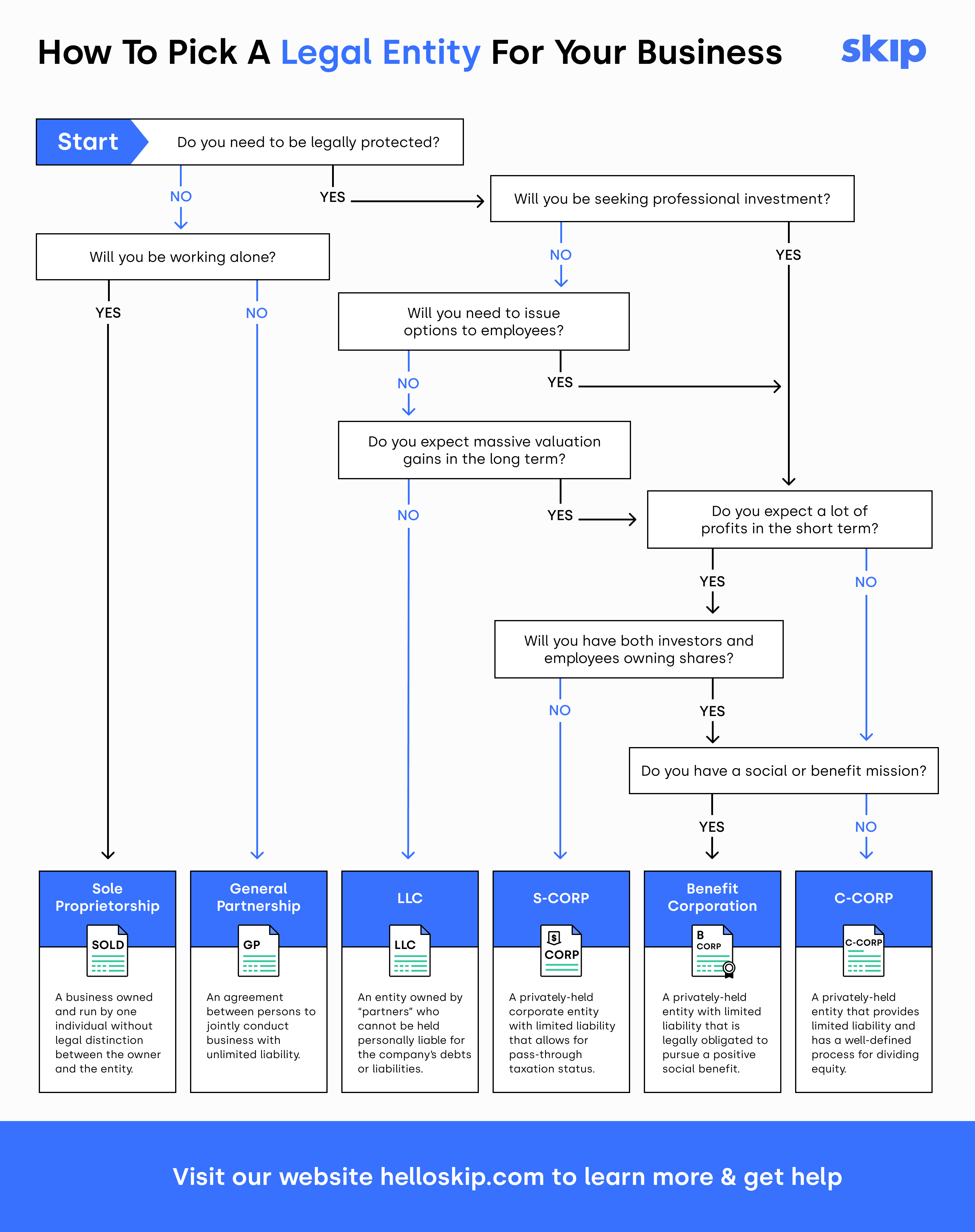Are you looking to start a business but aren't sure the best legal structure to choose? According to the SBA, there are currently over 33 million small businesses in the US and there were over 5 million new business applications in 2021 — the most at any point in history. So, whatever you're planning on starting or growing, here's a quick post to help you think through the most common business entity options — sole proprietorship, partnership, LLC, S Corp, C Corp, or B Corp.
Ready to start an LLC? Click here to set one up in a few minutes.
How to Pick a Legal Entity for Your Business
The below infographic can help point you in the right direction. Important disclaimer: It's good to get outside help here, especially from a lawyer, who can go into depth on pros and cons of each option. This is for informational purposes only. Below is a summary of each option:
Should you start a sole proprietorship? If you don't need to be legally protected, won't have employees, then this may be a good option for you. A "sole prop" is a business owned and run by one individual without a legal distinction between the owner and business.
Should you start a general partnership? If you don't need to be legally protected but won't be working alone, a general partnership might work well for you. A general partnership is an agreement between persons to jointly conduct business with unlimited liability.

Should you start a LLC or limited liability company? If you want to be legally protected but won't be seeking outside investment or issue stock options to employees, an LLC may be your best option. This is an entity owned by "partners" who cannot be held personally liable for the company's debts or liabilities.
Should you start an S-Corp? If you will be seeking outside investment and want to be legally protected — and you expect profits in the short term but won't issue shares to employees or investors — an S-Corp may be the right path for you. An S-Corp is a privately-held corporate entity with limited liability that allows for pass-through taxation status.
Should you start a C-Corp? The main difference between choosing an S-Corp and C-Corp is if you'll be issuing shares to both employees and investors and you don't necessarily expect profits in the near-term. In this case, a C-Corp allows you you to structure to optimize for issuing shares to investors and employees. The most common types are Delaware or California C-Corps. A C-Corp is a privately-held entity that provides limited liability and has a well-defined process for dividing equity.
Should you start a B-Corp or benefit corporation? The main difference between deciding between a C-Corp and a B-Corp is if you have have a social or benefit mission. A B-Corp is legally obligated to pursue a positive social benefit.
Want Help Starting or Funding Your Business?
Do you need help getting started, choosing the right entity for your business, or funding your business? Ask Skip Cofounder.

